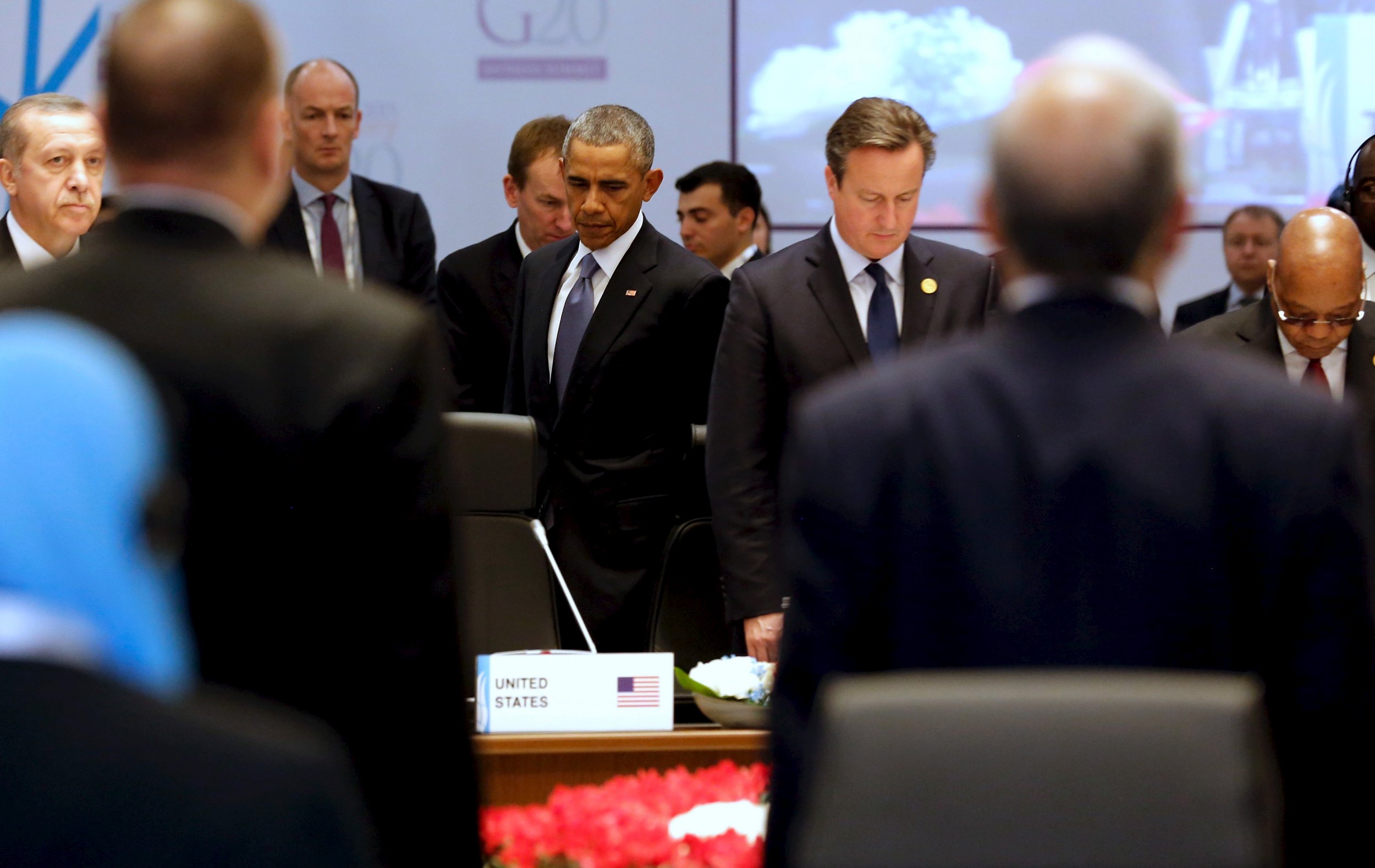
This article first appeared on the Council on Foreign Relations site.
Following the horrific November 13 assault on Paris—the world's most vibrant monument to the open society—there is a welcome global determination to crush the Islamic State (ISIS). There can be no negotiation with this apocalyptic movement.
The international response against the perpetrators must be, in the words of French President François Hollande, "pitiless." Achieving this aim will require a broad coalition, including not only NATO allies but also strange bedfellows like Russia, Saudi Arabia and Iran.
There will be necessary debates, of course—about whether to introduce Western (including U.S.) ground forces in Syria and Iraq, about whether to treat the Assad regime as an enemy, bystander, or partner in this effort, and about how the West can escalate its involvement without sparking the global religious war that ISIS desires.
An effective response will require the Obama administration to be out in front: there must be no leading from behind in this effort.
For the West, including the United States, three priorities stand out:
- Invoke NATO's Article 5
The Paris attacks, which President Hollande termed "an act of war," clearly justify France's invoking the collective defense provisions of Article 5 of the North Atlantic Treaty, which stipulates that an attack on any of the NATO allies is an attack on all.
Although created to defend the West from the Soviets, NATO has invoked Article 5 only once before in its history, following the September 11, 2001, al-Qaeda attacks on New York and Washington.
Invoking Article 5 will have several immediate benefits: broadening the coalition to all twenty-eight NATO member states, enhancing intelligence cooperation among France and its allies and permitting NATO to coordinate the air war against ISIS, as well as to provide unified command and control for the thousands of troops (beginning with special forces) that the alliance will surely have on the ground in Syria and Iraq within weeks.
As in Afghanistan's Operation Enduring Freedom, NATO will provide a useful platform for other non-NATO partners—including the Gulf states, and hopefully eventually even Russia and Iran—to conduct coordinated strikes against ISIS. As former French President Nicolas Sarkozy noted outside the Elyseé Palace, "There cannot be two coalitions in Syria."
2. Secure Europe's Borders while Remaining Humane
Even before the attacks, the European Union was in turmoil over its unpoliced borders as it grappled with an unprecedented (and ongoing) flow of refugees from Syria and other global conflict zones.
The mass influx, like the Eurozone crisis before it, exposed growing fault lines among EU members, dividing Germany and other governments that had thrown out the welcome mat from countries like Hungary, which objected to being forced to absorb alien populations.
As sovereignty trumped solidarity , borders and fences have begun to reemerge, threatening one of the EU's proudest accomplishments—free movement within the twenty-six nations Schengen Area. Just last week Donald Tusk, president of the EU Council of Ministers, warned that "saving Schengen is a race against time."
The Paris attacks have added a third "s" to the mix, more powerful than either sovereignty or solidarity: security. France has reimposed strict border controls, and other countries will surely do the same. This is nothing short of a disaster for Syrian (and other) refugees , who will increasingly find themselves suspected of sympathy for (or complicity in) the atrocities of the very terrorists they had fled.
EU leaders must find some way of securing the rights and safety of asylum seekers while their claims are processed, even as they take immediate steps to strengthen the Union's external borders to stem off more draconian demands from far-right parties. And if Schengen is to be saved over the long term, the price to be paid will likely be the creation of a robust, EU-wide border protection service.
3. Reaffirm the Goals of the Paris Climate Conference
The assault on Paris occurred just two weeks before the opening of the pivotal twenty-first Conference of Parties (COP-21) to the UN Framework Convention on Climate Change (UNFCCC).
The juxtaposition has led some critics in the United States to excoriate the Obama administration for fixating on global warming, even as ISIS expands its reach and its slaughter of the innocents. This critique is absurd and irresponsible.
A recurrent challenge in foreign policy is to be able to focus on the immediate and urgent while not losing sight of the long-term and important. ISIS presents a clear and present danger to international peace and the values of civilization. Global warming presents a potentially catastrophic threat to human survival on the planet.
As the world's most powerful nation, the United States cannot afford to choose between one or the other: it must be able to walk and chew gum at the same time.
President Obama plans to attend the Paris summit, along with more than one hundred other world leaders. The U.S. goal in Paris must be to achieve a breakthrough agreement among the assembled parties for the most ambitious reductions in greenhouse gas emissions ever attempted—with robust monitoring mechanisms to gauge progress. The attacks in Paris do not change this.
November 13, 2015, has joined a growing list of somber dates on the calendar. With each atrocity, terrorists test both the resolve and the wisdom of their targets and the resilience of civilization itself.
Let us endeavor, in crafting a collective response to this latest outrage, to respond firmly and resolutely, without descending into the barbarism of our adversaries.
Stewart M. Patrick is senior fellow and director, Program on International Institutions and Global Governance at the Council on Foreign Relations.
Uncommon Knowledge
Newsweek is committed to challenging conventional wisdom and finding connections in the search for common ground.
Newsweek is committed to challenging conventional wisdom and finding connections in the search for common ground.
About the writer
To read how Newsweek uses AI as a newsroom tool, Click here.








